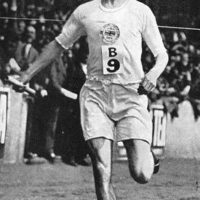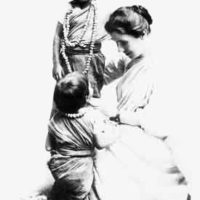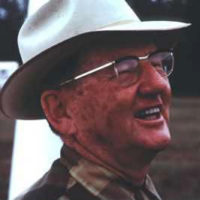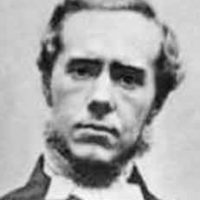 Carey was born in England in 1761. As a young adult, Carey was a cobbler. During this time, he started studying the Bible. While going through the Bible, he became convinced that the heart of God is to reach the lost.
Carey was born in England in 1761. As a young adult, Carey was a cobbler. During this time, he started studying the Bible. While going through the Bible, he became convinced that the heart of God is to reach the lost.
Opposition
Carey found a contradiction in what the church taught and what the Bible said. At the time, there were no mission societies. The church taught that the Great Commission was for the disciples only and after that, ceased to be in effect. One time while presenting his ideas at a church meeting, the minister told Carey “Sit down, young man. If God wants to save the heathen, He will do it Himself.” Carey refused to back off from his views, however. Once while preaching a sermon on world missions, the congregation acted like nothing was wrong but instead walked out of the church. Carey disappointed, thinking the congregation would see the need for more missionaries, but instead their reaction left him disappointed.
Off to India
In June 1773, Carey went started his journey to India, but the ship he embarked kept having to turn back due to rough waters. Carey’s wife was hesitant about traveling to such a distant land, but after the fourth time of the turnaround, she reluctantly agreed to go to India with them. The ship finally landed in India November 1773.
Carey started working in Calcutta, India. As he walked around the city, Carey was distraught to see all idols people worshipped and the practice of sati, burning a widow when her husband died. Carey began as a tentmaker with the missionary society, working in an indigo factory. In the factory, he passed out Gospel tracts to the workers. He also started Bible translation work in the corner of a factory.
Trials
During his time in India, Carey faced a lot of challenges. His wife became mentally ill. She would go around the city and tell people Carey was cheating on her. This hurt William’s witness, creating difficulties when he tried sharing the Gospel.
While in Calcutta, Carey faced opposition not from the people, but from the leaders of the East India Company who were opposed to missionary work. They wanted to keep the traditional religion of the people so as not to cause violent uproars by the Hindu leaders.
The Serampore Trio
Carey moved to Serampore, India, (a Dutch colony) in January 1800 where he started teaching at Serampore College. He continued his translating the Bible in several languages in India including Bengali and Mahari. In a house fire, Carey lost all his translation manuscripts. Despite this trial, Carey kept on going.
The Serampore Trio also started a hospital for the sick. The Serampore Trio was a group of three missionaries which sought to reach others with the Good News whether. They did this in various ways including passing out tracts on the streets.
Legacy
Carey was a man whose life was full of obstacles and difficulty. Despite this, he said, “I can plod. I can persevere in any definite pursuit. To this I owe everything.” This strength came only from Carey’s relationship with Jesus.
Carey died in Serampore, India in 1834. William Carey’s legacy continues in India. Many of the missionaries reaching out to other areas of India can be traced back to William Carey, who have read his translation. In addition, Serampore College continues to train up native leaders to share the Good News with others in their country and beyond.





Greetings in the name of our almighty Lord Jesus. I am pastor Shyamal Chandra sarker from Bangladesh. I am very interested to know about your ministry, how you are working in Asia, and if you have any vision for Bangladesh. I am praying for your ministry and how I can help you for Lord Jesus’ kingdom. Thank you. Pastor Shyamal Chandra sarker